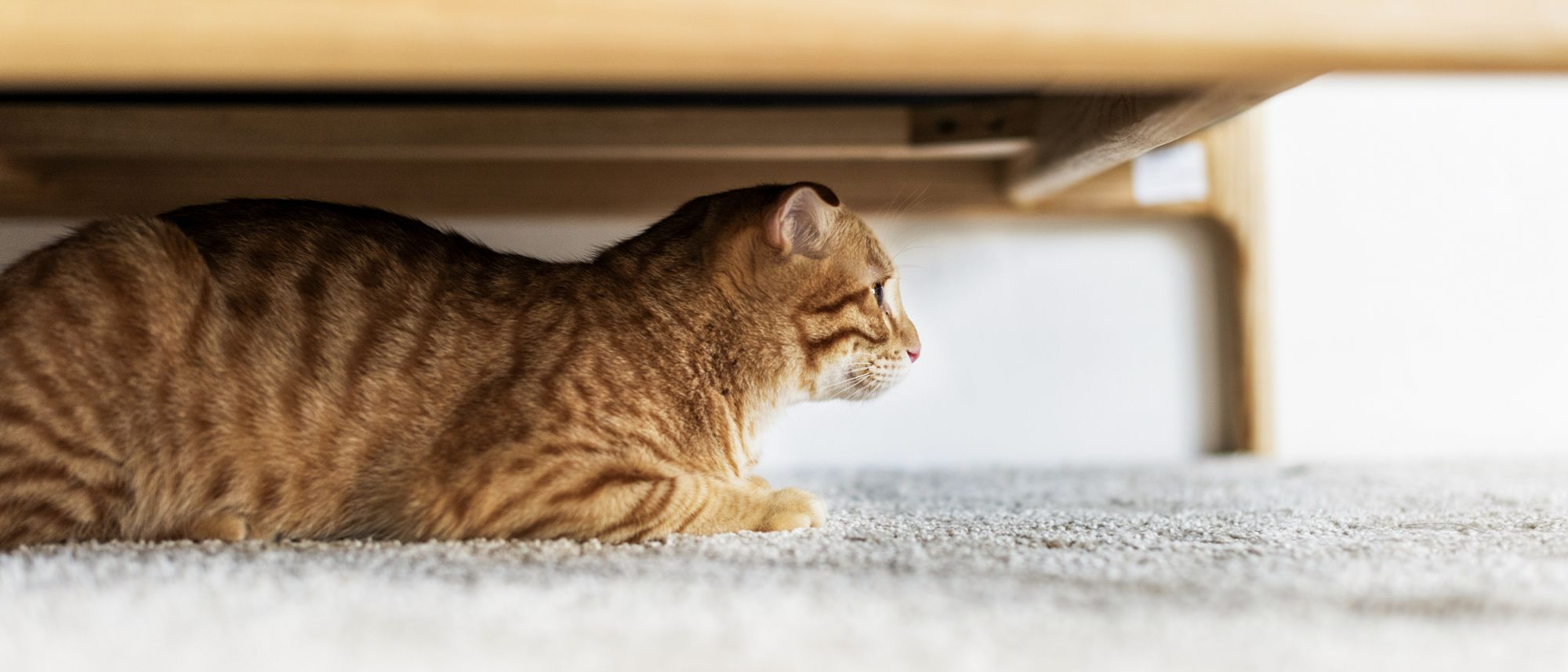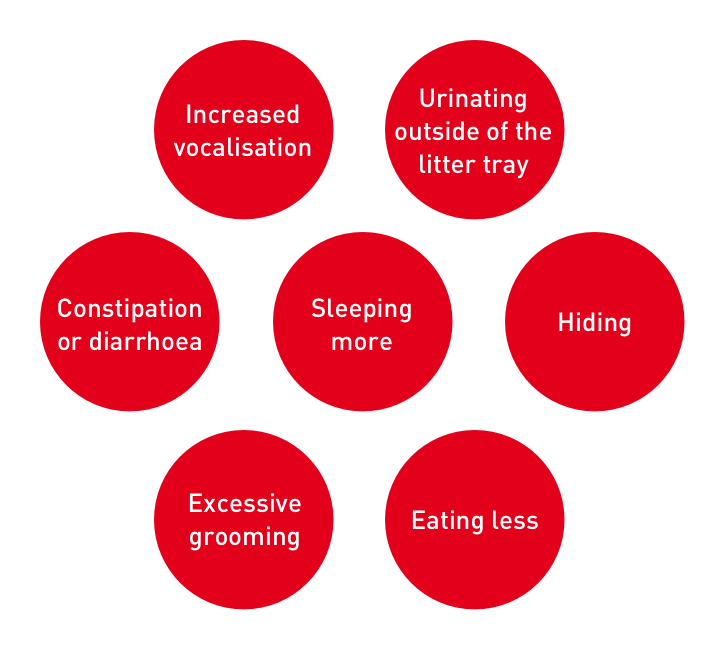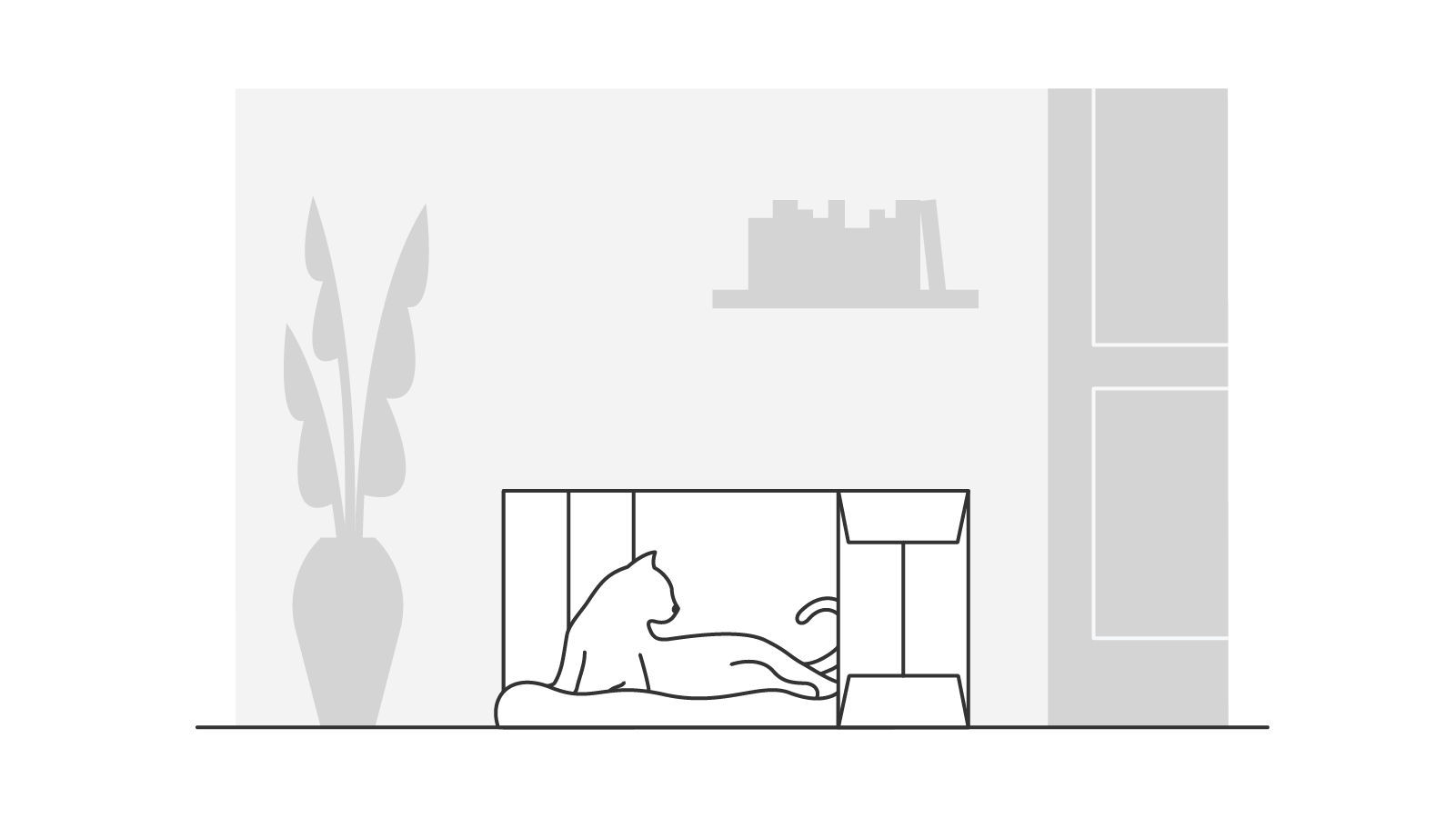Giving your independent cat their own space during a lockdown

The coronavirus pandemic hasn’t just impacted our everyday lives, but those of our pets too. With lockdowns still taking place and many people working from home, we are spending more time with our cats than they are used to. In the wild, big cats rely completely on themselves for survival, and this instinct to act alone is in your cat’s nature too. That’s why it’s important to check that your cat hasn’t become stressed by the change in their home environment and to find ways that help them enjoy their personal space.
How cats may show signs of stress:

- Increased vocalisation
- Urinating outside of the litter tray
- Constipation or diarrhoea
- Sleeping more
- Hiding
- Excessive grooming
- Eating less
If you are concerned that your cat is showing any of signs of stress, you should visit your vet to rule out any potential health issues. Below are some ways you can help your cat feel happy and relaxed while you’re all at home.
Giving your cat personal space
If your cat often falls asleep on you, walks across your laptop while you’re working, or curls up on your bed at night, you may be surprised to see cats and personal space in the same sentence. But allowing your cat to be in control of how and when they have space is key. That could mean letting them decide whether they want to enter a social situation, not rushing them into meeting new pets, or not forcing them to interact with you or other family members.Sitting quietly in a room with your cat while you read, or telling family not to give the cat attention when it enters a room, are good ways to let them socialise of their own accord. Never corner them or give them too much eye contact as this can seem threatening even if you don’t mean it to. Let your cat come to you for attention and always allow them to walk away when they choose to.
Your cat needs to be able to walk away when they want your interaction to stop. Otherwise, they will have to communicate that they need space in another way, and that could mean showing fear or aggression by snipping, scratching or biting.
How to create a quiet, safe space for cats
You can also give your cats space by providing safe zones for them to retreat to around your home. These can be as simple as a cardboard box turned on its side with some familiar bedding inside. Ideally, they’d be placed in areas of your home that are warm and offer some peace, like a spare room or study, and away from strong odours like air fresheners or litter trays.
Often cats like to sit somewhere high up where they can hide away and observe their surroundings. So consider creating more vertical spaces by giving them platforms to climb on. You can do this with a cat tree or with some shelves fixed to a wall.
These spaces, when done right, are seen as a safe haven for your cat to lounge or sleep. Leaving cats alone when they're in their designated safe space is important, so allow them to do as they please and discourage family members from disturbing them.
If you have more than one cat, it is even more important they have a space to call their own. You should provide sleeping and resting spaces, multiple litter boxes (at least one per cat, plus an extra litter box) and individual food and water bowls kept in separate locations. This will help reduce competition and keep these areas peaceful.
Reading your cat’s body language
Your cat uses their body language to express the way they’re feeling, so by observing them, you’ll be able to tell if they are in an affectionate mood or whether they’d prefer some time alone.How to tell if your cat wants attention
If your cat’s ears are facing forward and their eyes are round or squinting they are likely to be calm and content. If they rub their head or tail against you, it’s a sign that they feel close to you, so you’d be welcome to return their affection.How to tell if your cat wants space
If your cat’s ears are flattened and their pupils are dilated, they may be feeling aggressive. If you stroke your cat and they start to swish their tail, they could be trying to tell you that they’re not enjoying it. Unlike dogs, a swishing tail is not a sign of happiness, but instead a signal that they are feeling restless and agitated.Giving your cat attention
Whilst your cat enjoys time alone, it’s still important to give them attention in small doses.Playing with your cat is a great way to interact. It’s not only healthy exercise for them, but mentally stimulating and strengthens the bond between the two of you. Games that involve chasing and catching allow them to fulfil their natural instincts, so try throwing rolled up balls of newspaper or bouncing ping pong balls to keep them amused. Whatever games you choose to play with your cat, it's important to use a toy or an object instead of your hands. Also, make sure you supervise them and keep each session short.
By keeping an eye on our pets during this challenging time, we can make sure the changes to our daily routines aren’t having a negative effect on their well-being. If you are concerned that your cat is showing any of signs of stress, speak to your vet for more advice.
Лајкуј и подели страницу